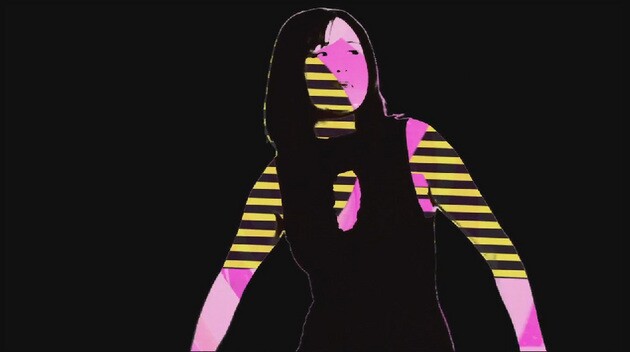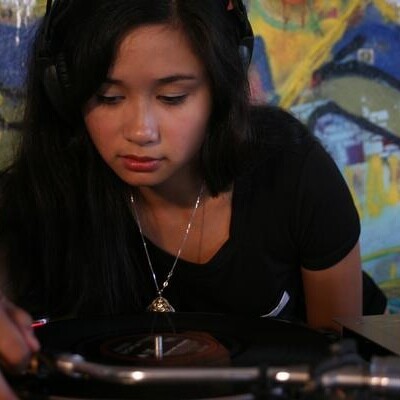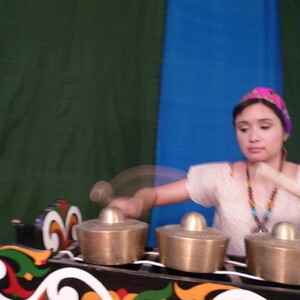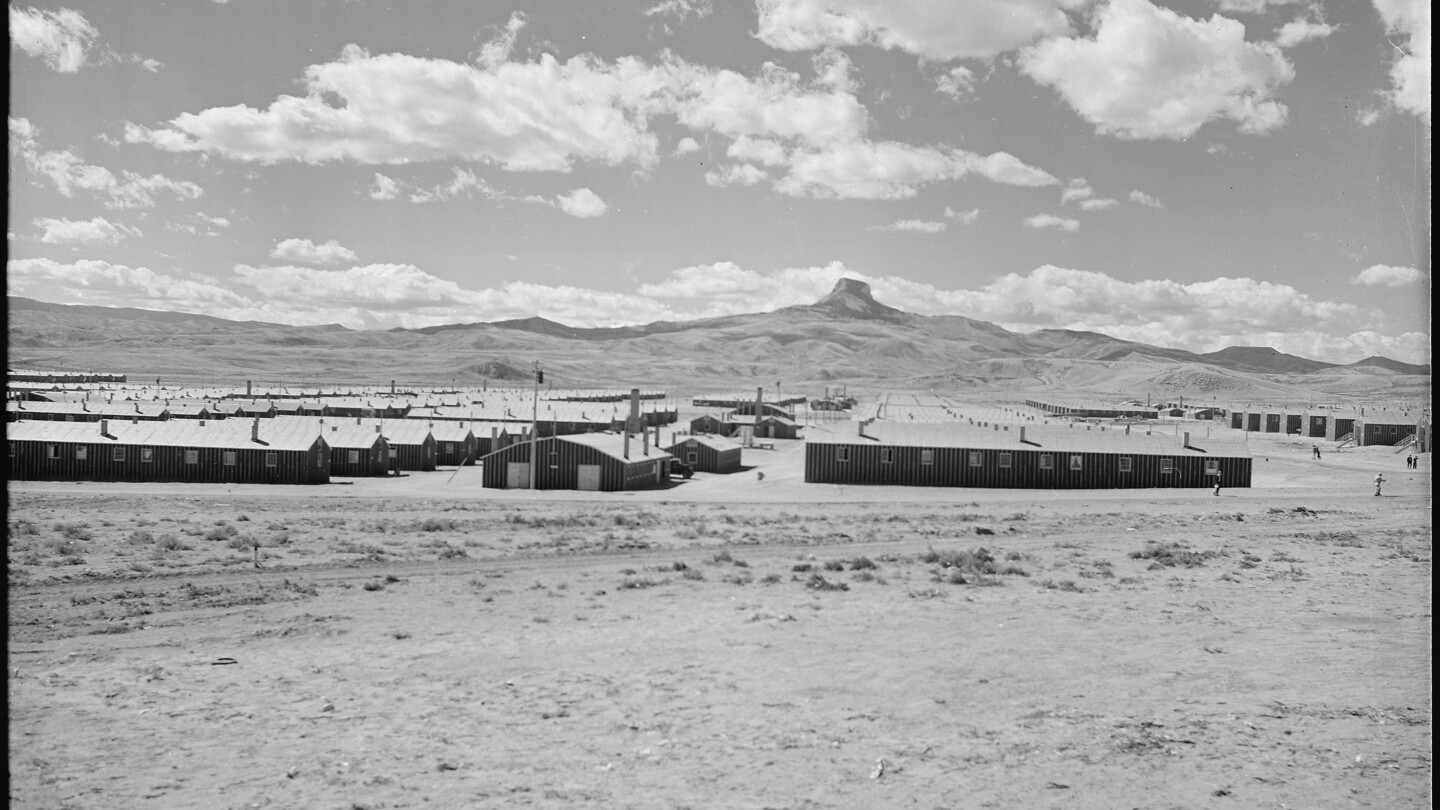Marjorie Light: Renaissance Filipina from Eagle Rock

Eagle Rock-born Renaissance woman Marjorie Light is a one-woman art festival that DJs, teaches, and performs. The Filipina musician, writer, DJ, educator, performer is at the vanguard of the Northeast L.A. arts community. Graduate of Eagle Rock Elementary and High School, and then Pitzer College, Light reps Eagle Rock with flying colors. Aside from her college years, she has lived almost all of her 30 years in the famed district below the big rock. This week L.A. Letters honors Light, Eagle Rock and Filipino/a history in Southern California.
Considering last week's catastrophic storm in the Philippines, it's important to take a moment to recognize the incredible contribution that the Filipino community has made here in Southern California and, for that matter, America. Filipino sailors were the first Asians in North America in the 16th Century; they were sailing with the Spanish Conquistadors. Spain ruled the Philippines for over 300 years, and when Los Angeles was settled by Spain in 1781, there were a few Filipinos among the 44 original pobladores. Early 20th Century Filipino life in California is detailed in heartbreaking technicolor by the famed scribe Carlos Bulosan. Now in 2013, there are almost 1.5 million Filipino-Americans in California.
Marjorie Light is a proud Filipina that knows her culture. "Filipinos are a people with a lot of different cultural influences," she says. "We have our native indigenous influence, as well as Spanish elements, due to colonization and American influence. We are also a very musical people who love to perform. I grew up having to perform on command for my family, whether it was singing Karaoke, dancing salsa and swing, or playing the piano." Her childhood ritual of performing led to her current vocation; more on that in a moment.
A sizeable enclave of Filipinos has lived in Eagle Rock for multiple generations. There are Filipino enclaves also in Artesia, Cerritos, Carson, West Covina, Walnut, in the San Gabriel Valley, Panorama City, and of course Historic Filipinotown. San Francisco, Stockton, and San Diego have an equally historic Filipino legacy. What's less known is that along Glendale Boulevard and Highway 2 is a belt of Filipino residents, from Rampart, Echo Park, Atwater Village, through Glassell Park, into Glendale and Eagle Rock.
Eagle Rock is also one of L.A.'s oldest districts, as one of the first suburbs built at the end of the 19th Century -- one of the areas developed with the Pacific Electric Red Cars. Marjorie Light shares some local folklore: "Eagle Rock has an amazing energy. The name of the town comes from this huge boulder that has an eagle imprint on the side. There is a Native American folk tale that explains how it got there. I grew up with a sense of pride in my community, as well as an awareness that there is a history here."
From an early age Light was enrolled in several different classes outside of school, like gymnastics, fine art, music and dance. "I remember hanging out at the Caspar Branch library every day after school in elementary," she says. "Besides climbing trees, playing tag, and sneaking food in the library, me and my friends would read tons of books, including ones we weren't supposed to be reading."

At age 14, Light dove into the arts and music scene. "I started getting heavily into riot grrrl and feminist, D.I.Y. (Do it yourself) punk culture, which I discovered online," she remembers. "I started publishing my own zine of art and writing, 'Some Misplaced Joan of Arc,' and selling it at school."
She then attended a poetry slam at Beyond Baroque in Venice Beach, where she met poet Jeffrey McDaniel, who invited her to be a part of a teen poetry workshop. McDaniel introduced her to Irene Soriano, "who introduced me to the thriving Filipino American poetry scene," Light remembers. "From there I started doing a lot of poetry events at SIPA (Search to Involve Pilipino Americans) in Historic Filipinotown, FPAC (Festival of Philippine Arts and Culture) and getting published in poetry journals, like 'Disorient,' and getting invited to be a part of projects, like 'L.A. Enkanto: In Our Blood,' which is the first CD of Filipino American spoken word from Los Angeles."
Light had a life-changing experience with these seasoned poets. "It was the first time I had been exposed to a Filipino American art scene, and I'm lucky to have grown up with so many cool role models and mentors." Light credits her mom for everything -- Shatto Light, aka "coolest mom ever and a talented artist in her own right."
During her time in college at Pitzer, she was inspired to create her own majors: Women of Color Art and Activism, and World Performance Traditions. She says, "After being exposed to the Filipino American/Asian American art scene, I took it upon myself to learn all I could about my history and culture by taking classes in college, and being part of community events. I also incorporate Filipino elements in my music, such as my use of Kulintang (Filipino gongs)."
After graduating in 2006, Light returned to Eagle Rock. She's been teaching DJing and music production at an after school program, through the Youth Policy Institute, for five years. She's taught hundreds of students how to mix, scratch, and throw their own events. They use turntables, so its gives them more of a hands-on experience than they would have with computers or iPods. She notes, "I see my role as encouraging kids to find their genuine selves and providing an environment where they can explore DJing, songwriting, and music production." She's also taught writing workshops and appeared at schools in Pacoima, North Hollywood, and elsewhere in the Valley and L.A. I met Light in 2006 at a poetry event, right after she graduated. She gave me a chapbook of her poetry, "Green Blossoms."
During the same time, Marjorie Light became known as DJ Gingee in the local musical underground. Besides spinning at countless events, she participated in several beat battles, even emerging victorious in the competitive field. She also started Magic Garage, the legendary art event, which originally started out of her family's home in Eagle Rock. "I was hanging with my brother and his bandmates in our garage, where we would jam out. I got the idea to throw a small show with a few bands in the garage. I then thought to add an art gallery, and that's how Magic Garage was born."

Word of mouth spread about the event, and they soon outgrew the original space. "From there we moved on to warehouse spaces in Downtown L.A., and even did a two day festival. Soundpaint is the monthly version of Magic Garage, which we've been doing for the past year at the Airliner club." They have had a series of shows with a cadre of up and coming artists, like Beat Cinema, Late Night Laggers, Muevelo crew, GRN + GLD, and Team Supreme.
Light also collaborates closely with a large community of women artists, like Martha Carrillo, the founder of Heart On Collective, who is a mother of four and is involved a lot with the arts community. There's also Ana Chaidez or Anartkista, the resident crafter of Magic Garage. Light says, "She has an earthy, natural energy which is other worldly." She also has been making beats and making music with Chelsea Cano, or Nite N Dae, as she is known in the underground hip hop community. "Nite N Dae is one of the dopest female MCs in L.A., and I've been privileged to be able to collaborate with her on music. We've become a kind of dynamic rap duo. That girl can has tons of energy and can write rap verses like there's no tomorrow."
Light's role as performer and community messenger has been a lifelong project that she will always be committed to. "I have the awareness that Filipinos/Asian Americans are still marginalized within music, and American culture in general," she says. "For that reason, I have the feeling of being a representative of my culture, and fighting for inclusion of my voice. If not for myself then to provide an example for other young women."
Marjorie Light represents for young women, her culture and the world at large. She has two forthcoming records in addition to several other projects. She currently DJs weekly at the Hip Kitty Jazz and Fondue in Claremont on Thursday nights, in an event called Mixology.
There's been an outpouring of support from the local community following the storm in the Philippines. The Los Angeles Filipino community has really mobilized, and the Lakers even donated $150,000. Light was relieved to find out her family there was ok, but not everyone has been so fortunate.
I grew up with many Filipinos myself in Cerritos and at Artesia High, and would like to extend my support and gratitude to the Filipino community for their invaluable contribution to California. Salute to Marjorie Light, Eagle Rock, Southern California's Filipino community, and everyone in the Philippines for being beacons of light in the geography of international and L.A. Letters.
Top: Still from music video for Gingee's track "Badass"


